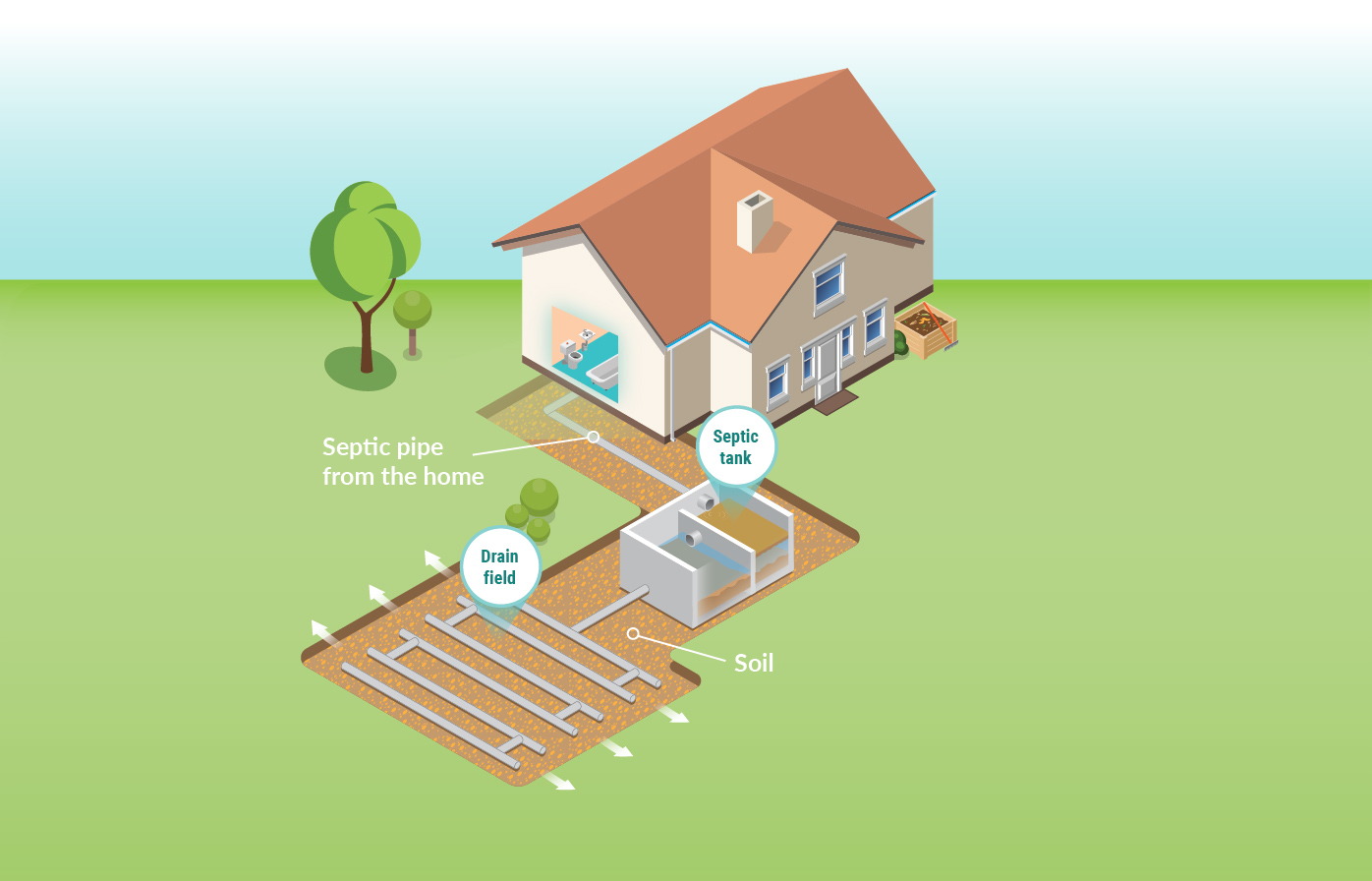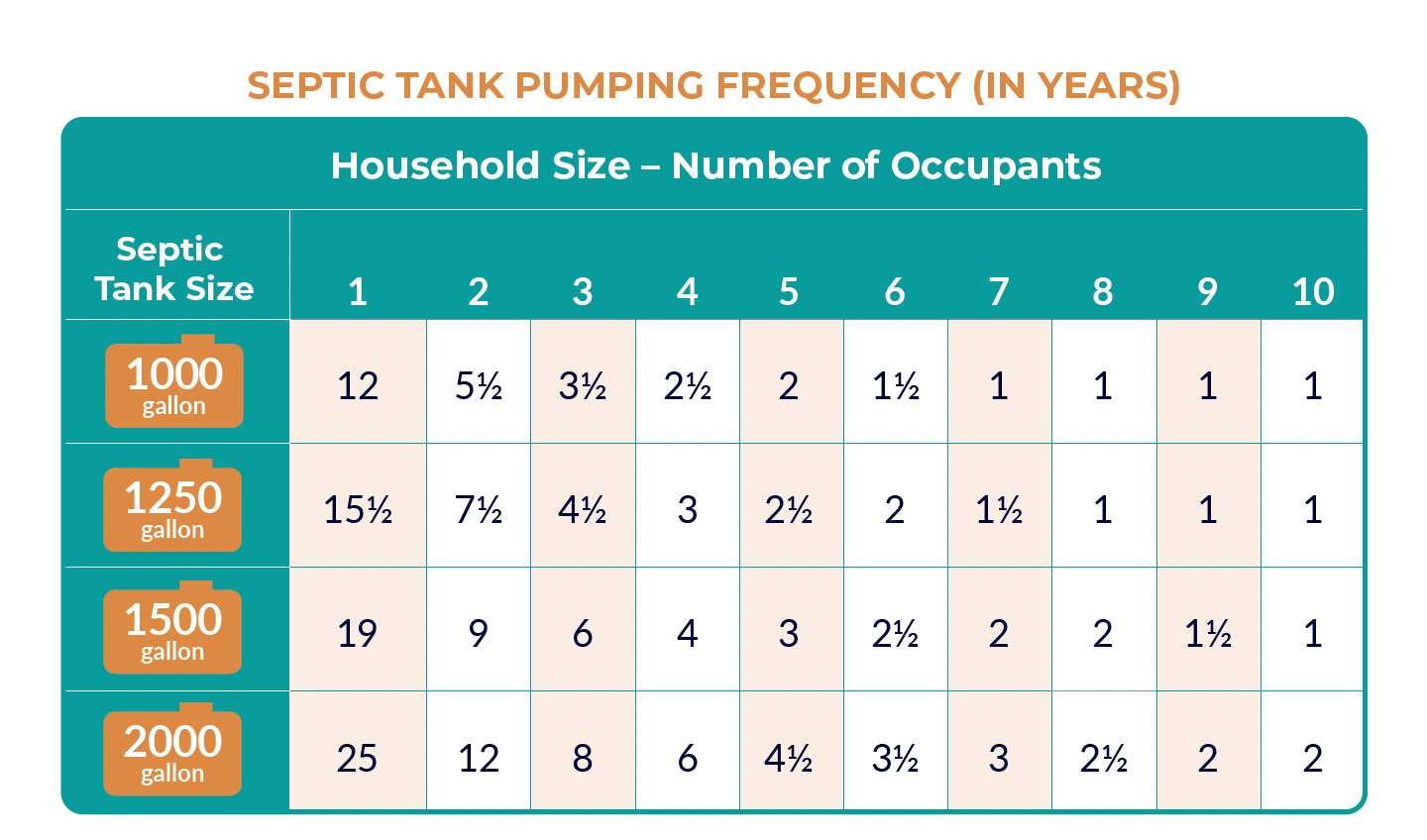How To Prevent A Septic Emergency
January 30, 2024

Residential Septic System
Septic systems are critical wastewater treatment infrastructure. In areas where sanitary sewers. aren’t accessible, or where homes aren’t connected to the public sewer system, septic systems are used to store and treat wastewater. However, septic system failures can be dangerous to human health and water quality. During a failure, human waste, containing harmful bacteria and viruses, can flow untreated into the storm drain system causing harm to anglers, swimmers, and aquatic life. It is vital to prevent spills and have them cleaned up immediately if they do occur.
Property owners are responsible for maintaining their septic system to prevent failures. They are also liable for any spills on their property, so staying on top of system maintenance and following best management practices (BMPs) is essential.
Continue reading below to learn more about septic systems and what property owners can do to prevent a septic system emergency.
What is a Septic System?
Septic systems treat a property’s wastewater and sewage in an underground tank where it is slowly broken down via natural processes. The resulting byproduct is then released to a drain field, where it seeps into the ground and is further cleaned by the soil.
Septic systems differ from the public sewer system because treatment and transport occur on the property. The public sewer system transports wastewater from all properties in a given area and treats it at a central treatment plant.
Since septic systems handle human waste, maintaining them is critical to prevent emergencies. If your property has a septic system, read on to learn what you can do to keep yours running smoothly.
Prevent Blockages
Septic systems need TLC (just like the rest of us). They are prone to blockages if the wrong materials are put down the drain. Follow these guidelines to ensure your septic system stays blockage-free:
- Wastewater and septic-safe toilet paper are the only things that should be flushed down the drain.
- Solid waste like sanitary products, cigarettes, cotton balls, baby wipes, and “flushable” wipes should always be placed in the trash.
- Chemicals like cleaners, bleach, and solvents should be properly disposed of at a local household hazardous waste collection facility, and never poured down a drain.
- Cooking oils should be collected in a container, refrigerated, disposed of in the trash, and never poured down a drain.
- Commercial drain cleaners, yeast, and sugar are sometimes added to clean septic tanks and break down starchy items; but they can do more harm than good. They are not necessary and can cause problems for your septic system.
By following these guidelines, you can increase the life of your septic system, protect your family from a septic emergency, and keep our waterways healthy.
Maintain Your Septic System
Out of sight should not be out of mind for your septic system. Since wastewater is treated on your property, clogs and drain field damage can cause emergencies you are responsible for. Here are some ways to keep things operational:
- Regularly inspect your drain field and downslope areas.
- Keep vehicles, pets, and livestock away from your drain field.
- Direct runoff from your roof, driveway, or patio away from your drain field.
- Plant new trees or large shrubs several feet away from your drain field to prevent roots from bursting pipes.
- Have your septic system pumped regularly as recommended by a licensed professional.
- A licensed septic tank professional should inspect and pump your septic system every three to five years; however, the exact schedule depends on several factors like the foliage nearby, how heavily trafficked your property is, and the number of residents in the home.
 This chart provides general guidance, contact a licensed septic professional for a timeline specific to your system.
This chart provides general guidance, contact a licensed septic professional for a timeline specific to your system.
Signs of a System Failure
Some issues to watch out for during regular inspections of your drain field and downslope areas are provided below. Keeping your eye out for these warning signs can save you money and our waterways from harmful pollution.
- Noxious odors
- Wet spots
- Sewage coming to the surface
If you notice any of these signs, you are likely having a septic system emergency. Acting fast when seeing these warning signs can help protect our waterways and your loved ones.
What to do When a Failure Occurs
Remain calm and take action. If you notice the warning signs listed above, respond immediately by:
- Contacting a licensed septic professional.
- STAYING OUT of your septic tank. The lack of air and poisonous gases can be fatal, so please leave it to the professionals.
- Contacting the 24-Hour Pollution Reporting Hotline by calling 1-877-89-SPILL (1-877-897-7455) or visit myOCeServices.ocgov.com.
While we cannot fix your septic system (you will still need a licensed professional for that), the sooner we are notified of a spill, the sooner we can get to work preventing impacts to our waterways.
Whether you are inland or on the coast, your actions can directly impact OC’s waterways. By following these best practices, you can prevent sewage from causing damage and flowing untreated into our creeks, rivers, and ocean. For more information, visit our Septic System Maintenance page. Thank you for maintaining your property and being the solution to runoff pollution!